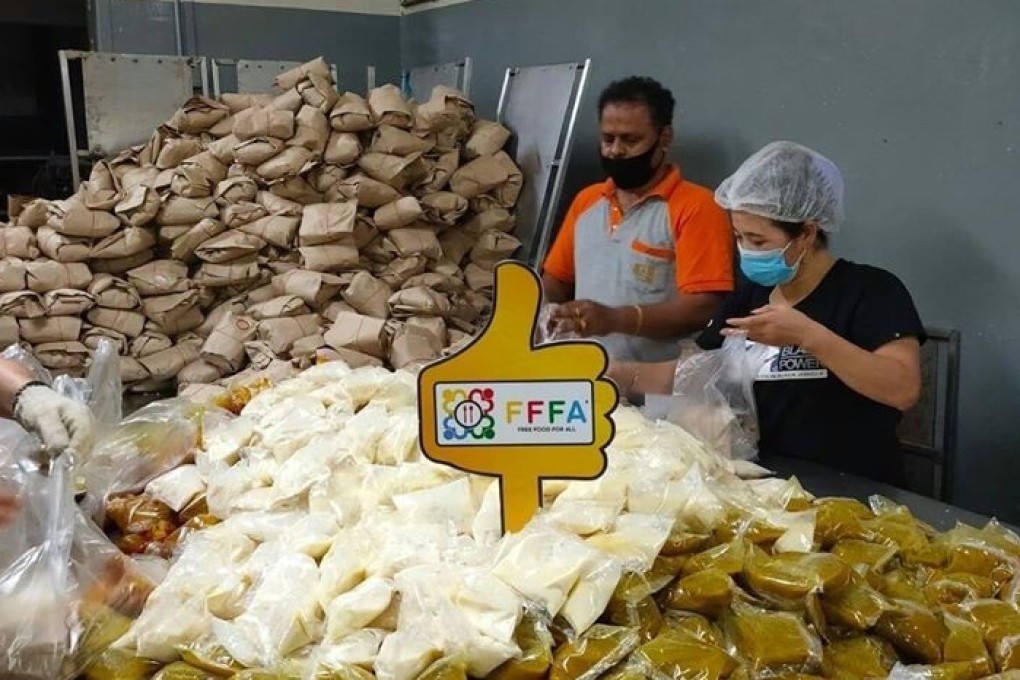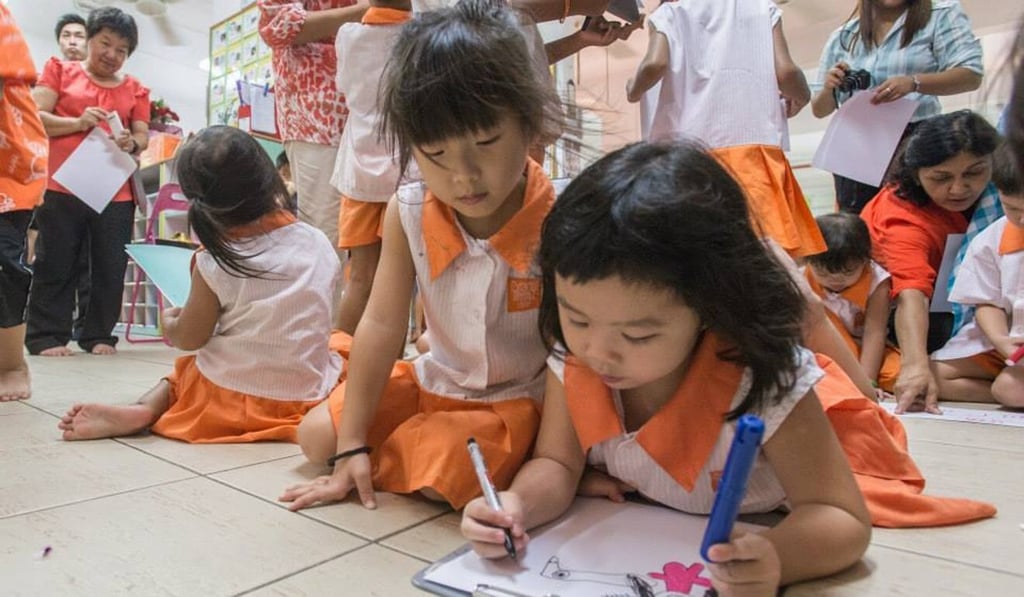Advertisement
Singaporeans open their hearts and wallets to donate to the needy during coronavirus outbreak
- Singapore’s philanthropy scene has had an unexpected boost, with online fundraising platform Giving.sg hitting a record high of US$9.5 million in April
- This was partly driven by a government support payout scheme and viral #GiveYour600 campaign urging those not needing the cash to donate it
Reading Time:4 minutes
Why you can trust SCMP

The early months of the Covid-19 pandemic sent Nirmala Murugaian into a blind panic. As Singapore slipped into an economic downturn, funds plummeted at Child at Street 11, the non-profit childcare centre that she runs.
Parents could no longer afford to pay childcare fees as they were hit by job losses or pay cuts. Funds from corporate donors quickly dried up as cost-cutting measures kicked in.
The centre, which currently has 55 children from low-income families and largely relies on donations, only managed to raise S$20,000 (US$14,000) in February, but its monthly expenses average around S$80,000 (US$56,000). There was a real threat it would cease to exist, and Singapore’s partial lockdown made the situation even worse.
Advertisement

“That was really scary,” said Murugaian. “We had to close the school, and all our contacts with our usual donors had to stop. It was like seeing your blood pressure readings on a health machine. Is it going to stop? Is it going to end?”
Advertisement
But donations started streaming in when word got out about the 21-year-old centre’s plight, and it raised about S$200,000 (US$140,000) in three months. Not quite enough yet, but the generosity gave it hope, she said.
Advertisement
Select Voice
Choose your listening speed
Get through articles 2x faster
1.25x
250 WPM
Slow
Average
Fast
1.25x